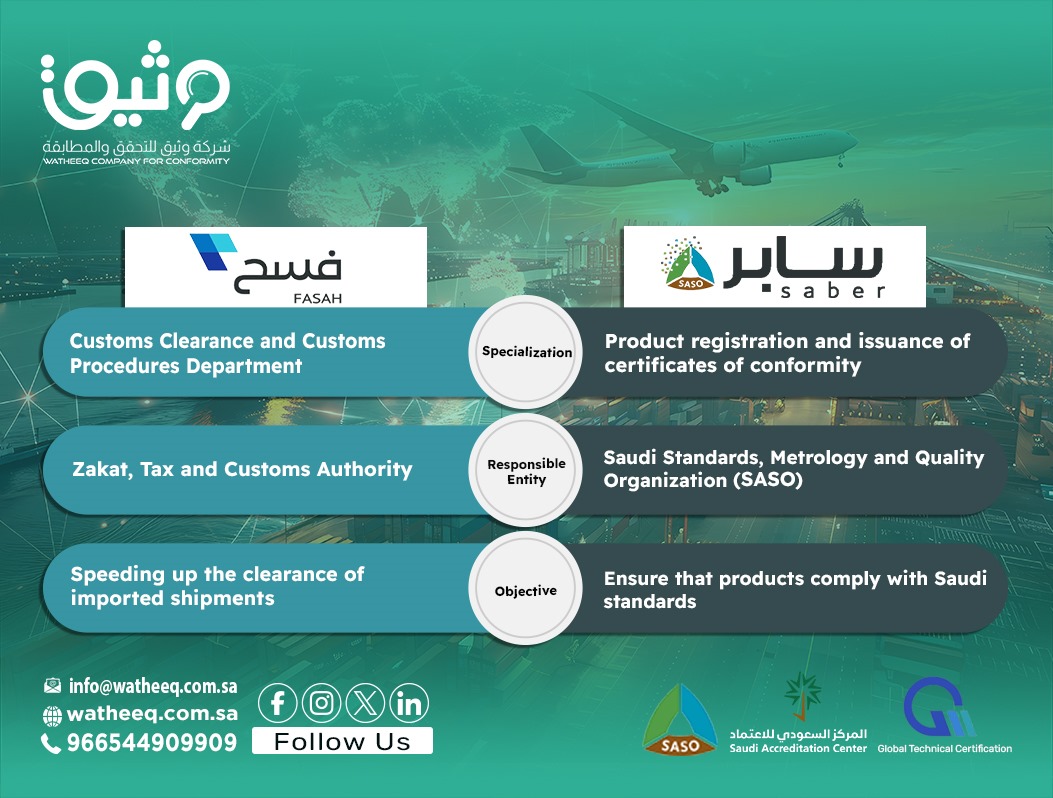How to Import to Saudi Arabia
Learn How to Import to Saudi Arabia Step by Step
Complete explanation of customs requirements, necessary documents, and customs clearance fees to ensure a successful import process.
How to Identify a Winning Product in the Saudi Market
To succeed in importing to Saudi Arabia, you need to identify products with high demand. You can follow these steps:
- Study the local market: Analyze consumer trends and best-selling products.
- Review reports and statistics: Look at official reports and import/export statistics.
- Consult with local experts: Advisory firms or experts can provide deeper insights.
Why You Should Understand Import Conditions
- Avoiding legal violations: Compliance protects you from fines and penalties.
- Ensuring smooth operations: Guarantees fast customs clearance and delivery.
- Protecting the consumer: Ensures safety and satisfaction by meeting standards.
What Are the Import Conditions in Saudi Arabia?
The Zakat, Tax and Customs Authority regulates imports with the new customs system. Importers must:
- Register with the Zakat, Tax and Customs Authority and obtain a commercial registration.
- Obtain necessary permits for restricted products (e.g., Ministry of Health, SFDA).
- Register products on the Saber platform to verify compliance with Saudi specifications.
- Submit basic customs documents:
- Commercial invoice
- Bill of Lading
- Certificate of origin
- Packing list
- Certificates of conformity and permits
- Ensure original invoices are signed and stamped.
- Use the correct HS Codes for products.
- Pass customs inspections and pay applicable duties and taxes:
- Saudi customs tariffs
- Value-added tax (15%)
- Selective tax for specific products (soft drinks, tobacco)
Important Documents and Requirements for Importing to Saudi Arabia
Ensure the following documents are provided:
- Detailed commercial invoice
- Certificate of origin
- Bill of Lading
- Certificates of conformity
What is the Customs Clearance System in Saudi Arabia?
The customs clearance system involves:
- Submitting required documents
- Inspecting goods for compliance
- Paying applicable duties and taxes
Features of the Saudi Customs System
- Digital transformation: Electronic platforms simplify procedures.
- Transparency: Clear rules and regulations for importers.
- Efficiency: Faster clearance to reduce waiting time.
Saudi Customs Fees for Goods
Fees vary depending on the product type:
- Vegetables and household items: 15%
- Cars and vehicles: 15%
- Meat: 2% to 15%
- Dairy, marble, plumbing tools, cosmetics: Up to 15% (some exemptions available)
Which Goods Are Prohibited from Importing to Saudi Arabia?
- Weapons
- Alcohol
- Drugs
- Pork products
- Pornographic materials
Saber Platform (Saber.sa)
Saber is used to:
- Register products before entering the Kingdom.
- Issue certificates of conformity.
- Speed up import procedures through digital processes.
How to Use Saber:
- Register on the platform.
- Select the product type.
- Upload documents such as certificates and invoices.
- Complete approvals and customs procedures.
Fasah Platform (Fasah.sa)
Fasah is used to:
- Manage shipments and coordinate with ports and airports.
- Submit invoices and documents electronically.
- Track shipment status and customs stages.
How to Use Fasah:
- Create an account.
- Enter shipment details and upload documents.
- Pay customs fees electronically.
- Track clearance status until goods arrive.

Difference Between Saber and Fasah
| Feature |
Saber |
Fasah |
| Specialization |
Registering products and issuing certificates of conformity |
Managing customs clearance and customs procedures |
| Responsible Entity |
Saudi Standards, Metrology and Quality Organization (SASO) |
Zakat, Tax and Customs Authority |
| Objective |
Ensuring product compliance with Saudi standards |
Accelerating the clearance of imported shipments |
Before starting the import process to Saudi Arabia, here are some tips and guidelines that can help you avoid risks and ensure a successful import process:
1. Ensure Thorough Market Research
- Conduct a comprehensive analysis of the Saudi market to identify in-demand products.
- Check competitors and potential selling prices.
- Use reports from official authorities about import/export volumes.
2. Check the List of Prohibited and Restricted Goods
- Don't assume all products are allowed.
- Always verify Saudi Customs' import regulations.
- Avoid importing prohibited items such as alcohol, drugs, or unauthorized electronics.
3. Understand Import Costs and Fees
- Make sure you understand the customs duties imposed on your products.
- Calculate additional costs (storage, insurance, and domestic transportation fees).
- Use the Saudi Customs duty calculator to determine exact costs.
4. Choose Reliable Suppliers
- Look for trusted suppliers with strong commercial records.
- Use platforms like Alibaba and Global Sources to find international suppliers.
- Request product samples before signing contracts to ensure quality.
5. Ensure Compliance With Saudi Specifications
- Check if your product requires a certificate of conformity.
- Use the Saber platform to verify product registration requirements.
- Obtain necessary conformity certificates to avoid customs rejection.
6. Use a Professional Customs Clearance Agent
- Hiring an accredited customs clearance agent can simplify the process.
- Ensure the agent has experience with your specific products.
7. Insure Your Shipments
- Insure shipments against damage or loss during transportation.
- Choose reliable shipping companies like DHL, FedEx, and Aramex.
Conclusion
If you plan to import goods to Saudi Arabia, it is essential to be familiar with all customs requirements and procedures to ensure a successful import process without legal or financial issues. By registering on the Saber platform for certificates of conformity and using the Fasah platform to speed up customs clearance, you can save time and money and avoid unnecessary delays. Always ensure your goods comply with Saudi specifications, rely on trusted suppliers, and understand all the fees and costs associated with importing.
 27 Apr 2025
Articles
27 Apr 2025
Articles
 27 Apr 2025
Articles
27 Apr 2025
Articles


